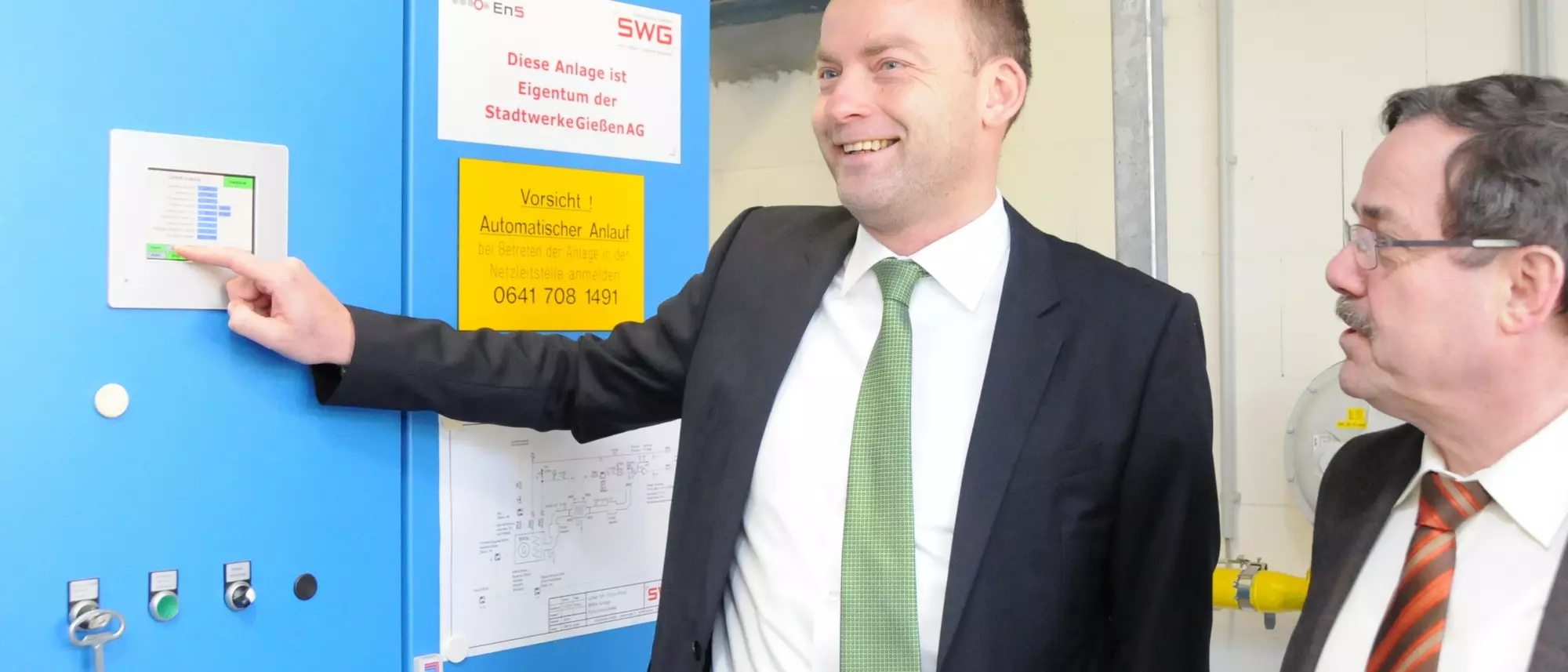
Climate-friendly and efficient: these two attributes apply to the new combined heat and power plant on the grounds of the Vitos Clinic in Giessen. Stadtwerke Gießen (SWG) installed it last year and put it into operation in November 2012. Since then, it has produced around 758,000 kilowatt hours (kWh) of electrical energy and 2,000,000 kWh of heat per year using the principle of combined heat and power (CHP). Most of this is consumed by the clinic itself, while the surplus is fed into the public power grid and SWG's district heating network.
For more than 30 years, SWG has been focussing on CHP, which, according to Matthias Funk, Head of the District Heating Department at SWG, can play an important role in the energy transition: "Photovoltaic and wind power plants generate highly volatile electrical energy. This means that they often feed in too much or too little electricity and these fluctuations need to be balanced out in order to keep the power grid stable. This is exactly what CHP units are ideal for. They can be switched on and off as required and we can temporarily store any unused heat in our grid."
Economical and climate-friendly
CHP is one of the most economical and ecological forms of energy supply. This is because, in contrast to the separate production of electricity and heat, the primary energy used - in the case of the Vitos Klinik, the energy stored in natural gas - is utilised more effectively. From 100 cubic metres of gas with an energy content of around 1000 kWh, the CHP unit generates 350 kWh of electricity and around 600 to 630 kWh of heat.
Marc Engelhard, Managing Director of Vitos Gießen-Marburg gemeinnützige GmbH, is delighted with the economic and ecological benefits of the new combined heat and power plant. "There is potential for savings in the area of energy supply. Integrated into our overall concept and a well thought-out efficiency strategy for our hospital, combined heat and power generation can play an important role". Markus Riester, Head of the Construction Management Department, also points out the ecological effect: "The lower consumption of fossil fuels and the associated reduction in CO2 emissions is our contribution to reducing the burden on the environment and conserving resources.

